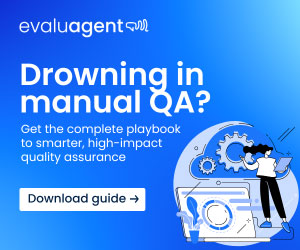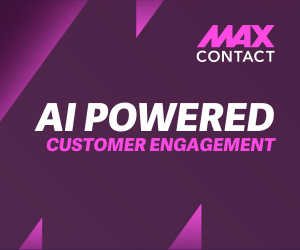Megan Haas of Interactions discusses the launch of a new podcast based on artificial intelligence (AI), before sharing five key takeaways from the first episode.
Last week marked the launch of Interactions’ new podcast, The ConversAItion, which airs viewpoints on the impact of AI on business and society. We have recapped the key takeaways from the first episode here.
“Right now, AI—it’s like magic. It’s this weird elixir. You don’t know what it is, and yet it’s not all that complicated. But most people, they have so little knowledge of it that it becomes a source of fear.”
Tech enthusiast and Interactions CMO Jim Freeze kicks off his deep exploration of AI with innovation expert Rob Atkinson.
They discuss the history of innovation, apprehension around AI at work and the importance of education and training in AI adoption.
Rob, the president of ITIF, a DC-based tech policy think tank, has been studying and researching innovation his entire career.
His POV is a respected one: The Obama Administration appointed Rob to an advisory board focused on national innovation strategy.
But, without further ado, here are the five takeaways from the first episode of The ConversAItion:
1. The pace of technological change isn’t accelerating – we go through innovation waves every generation.
Transformative waves of innovation occur every half century or so—this is an idea pioneered by the famous economist Joseph Schumpeter. Today, we’re in the early, beginning phases of applied AI.
2. AI won’t destroy more jobs than it creates.
The fear that human labor will be rendered irrelevant by technology isn’t new, and the labor market has always landed on its feet. We’re never going to run out of things to spend money on, and as long as that’s the case, there will always be new jobs created because people will want new and better things.
3. Lower skill, lower wage jobs will be impacted by AI – but that could be a good thing.
AI can do important things but they tend to be somewhat more routinized. It’s going to have a bigger impact on lower skill and lower wage jobs.
This could be a good thing so long as workers can move into more middle class jobs where they can make a better living, but which maybe have more skill requirements.
>When AI is applied to higher skill jobs, it’s going to be what economists call a complement. A doctor might use AI to improve their ability to diagnose and treat patients—but it’s unlikely a patient will consult an AI-powered robot for a diagnosis.
4. Governments must act smartly to avoid AI backlash.
Governments need to do a better job at helping workers succeed alongside automation. They could, for example, incentivize training programs by implementing tax credits on related expenditures.
Otherwise, there’s going to be so much opposition that we could see regulations emerge that restrict the use of AI at work.
5. Despite technological change, we’re teaching kids the same way we taught them 100 years ago. School systems need to change with the times.
A 2016 article reported that more California high school students take ceramics than take computer programming courses—and this in a state known as the heart of the tech industry.
As computer and data science advances, we should see required introductory courses in these subjects enter the standard curriculum.
Not only will this demystify the technology and drive less fearful, more productive dialogue on its impact, but it will also enhance the employability of our future workforce.
It’s increasingly essential for workers to have what Rob’s colleague David Moschella calls “double deep” skills. No matter the speciality—marketing, art, finance—workers will have to understand both their industry and the technologies reshaping their industry in order to be successful.
To listen to the full episode,click here.
Author: Guest Author
Published On: 30th Sep 2019 - Last modified: 18th Feb 2020
Read more about - Archived Content, Interactions




























